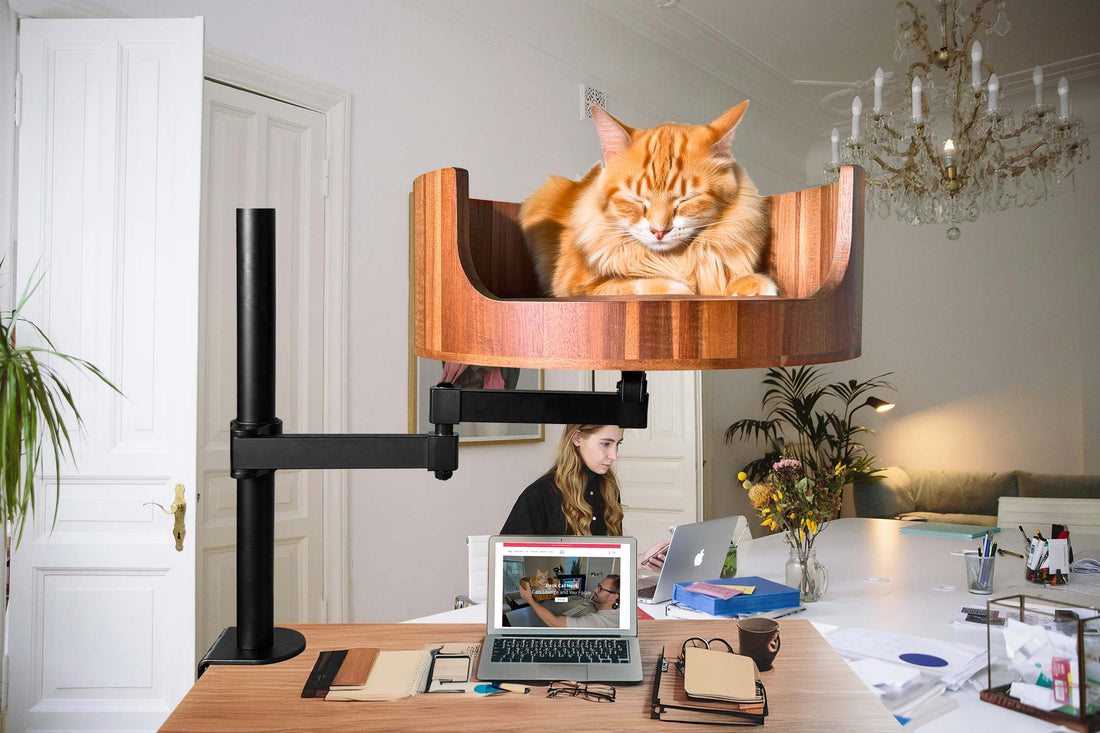
Why Does My Kitten Purr So Much? Understanding Feline Sounds
Share
From the soothing hum of a purring kitten to the sharp hiss of an annoyed feline, our furry companions have a wide range of vocal expressions that can communicate a variety of emotions. Understanding these sounds can provide valuable insight into your cat's well-being and foster a stronger bond between you and your pet. In this article, we will explore the reasons behind why kittens purr so much and decode the meanings behind different feline sounds.
One of the most common sounds that kittens make is purring, a soft vibration produced by the rapid contraction of their laryngeal muscles. While many people associate purring with contentment and pleasure, kittens may also purr when they are feeling anxious or in pain. By understanding the context in which your kitten is purring, you can better respond to their needs and provide them with the appropriate care. Additionally, we will delve into other feline sounds such as meowing, hissing, and growling, and discuss the reasons behind these vocalizations. By learning to decipher your kitten's sounds, you can strengthen your bond with them and ensure that they are happy and healthy.
1. Kittens purr as a way to communicate contentment and relaxation, often when they are being pet or cuddled.
2. Purring can also indicate hunger or a need for attention from their owner.
3. Understanding a kitten's body language while purring can help decipher their needs and emotions more effectively.
4. Excessive purring may be a sign of anxiety or pain, so it's important to monitor your kitten's behavior for any changes.
5. By paying attention to your kitten's purring habits and overall demeanor, you can foster a stronger bond and provide better care for your furry companion.
Understanding Feline Sounds
Cats communicate through a variety of sounds such as meowing, hissing, purring, and growling. Each sound conveys a different message or emotion, and it's essential to understand what your kitten is trying to tell you through its vocalizations. Purring, in particular, is a common sound that cats make, and it can have different meanings depending on the context.
Why Do Kittens Purr?
Kittens start purring when they are just a few days old as a way to communicate with their mother and siblings. Purring is often associated with contentment and relaxation, but it can also indicate pain or distress in some cases. Understanding the reasons behind your kitten's purring can help you provide better care and address any potential issues they may be facing.
Health Benefits of Purring
Research has shown that the frequency of a cat's purr falls within a range that can promote healing and reduce stress. The vibrations produced by purring have been found to have a calming effect on both cats and humans, making it a soothing sound to listen to. Additionally, purring can help cats lower their blood pressure and promote bone strength, making it a beneficial behavior for their overall well-being.
Signs of Distress
While purring is often associated with happiness, it's essential to pay attention to other cues your kitten may be giving off to determine if they are experiencing distress. Excessive purring, combined with other behaviors such as restlessness, hiding, or changes in appetite, could indicate that your kitten is not feeling well and may require veterinary attention. It's crucial to monitor your kitten's purring habits and seek professional help if you notice any concerning changes.
Frequently Asked Questions
Why does my kitten purr so much?
There are several reasons why kittens may purr frequently. Purring is often a sign of contentment and relaxation in cats. Kittens may also purr when they are seeking attention or comfort, when they are feeling anxious or scared, or even when they are in pain or not feeling well.
Is it normal for kittens to purr all the time?
While some kittens may purr more than others, it is not typical for a kitten to purr constantly. If you notice that your kitten is purring excessively or in situations where it seems out of place, it may be a good idea to consult with a veterinarian to rule out any underlying health issues.
Can the Desk Cat Nest help reduce my kitten's excessive purring?
The Desk Cat Nest provides a cozy and secure environment for your kitten to relax and feel safe, which may help reduce stress and anxiety that could be causing excessive purring. However, it is important to address any underlying reasons for your kitten's frequent purring, such as changes in environment or health issues, in addition to providing a comfortable space for them.
Will the Desk Cat Nest be comfortable for my kitten to nap and sleep in?
Yes, the Desk Cat Nest is specifically designed to be a comfortable and inviting space for your kitten to nap and sleep in. The soft cushioned interior provides a cozy spot for your kitten to curl up and relax, while the raised edges provide a sense of security and privacy.
In conclusion, providing your kitten with a comfortable and secure resting place, such as the Desk Cat Bed, can play a significant role in reducing stress and anxiety, ultimately leading to a decrease in excessive purring. This innovative cat bed offers a cozy and soothing environment for your kitten to relax and unwind, promoting a sense of security and comfort. With its plush cushioning and sturdy design, the Desk Cat Bed provides a perfect spot for your kitten to rest and recharge, ultimately resulting in a happier and more content feline companion. Invest in the Desk Cat Bed today to help address the root cause of why your kitten purrs so much and enhance their overall well-being.



















































